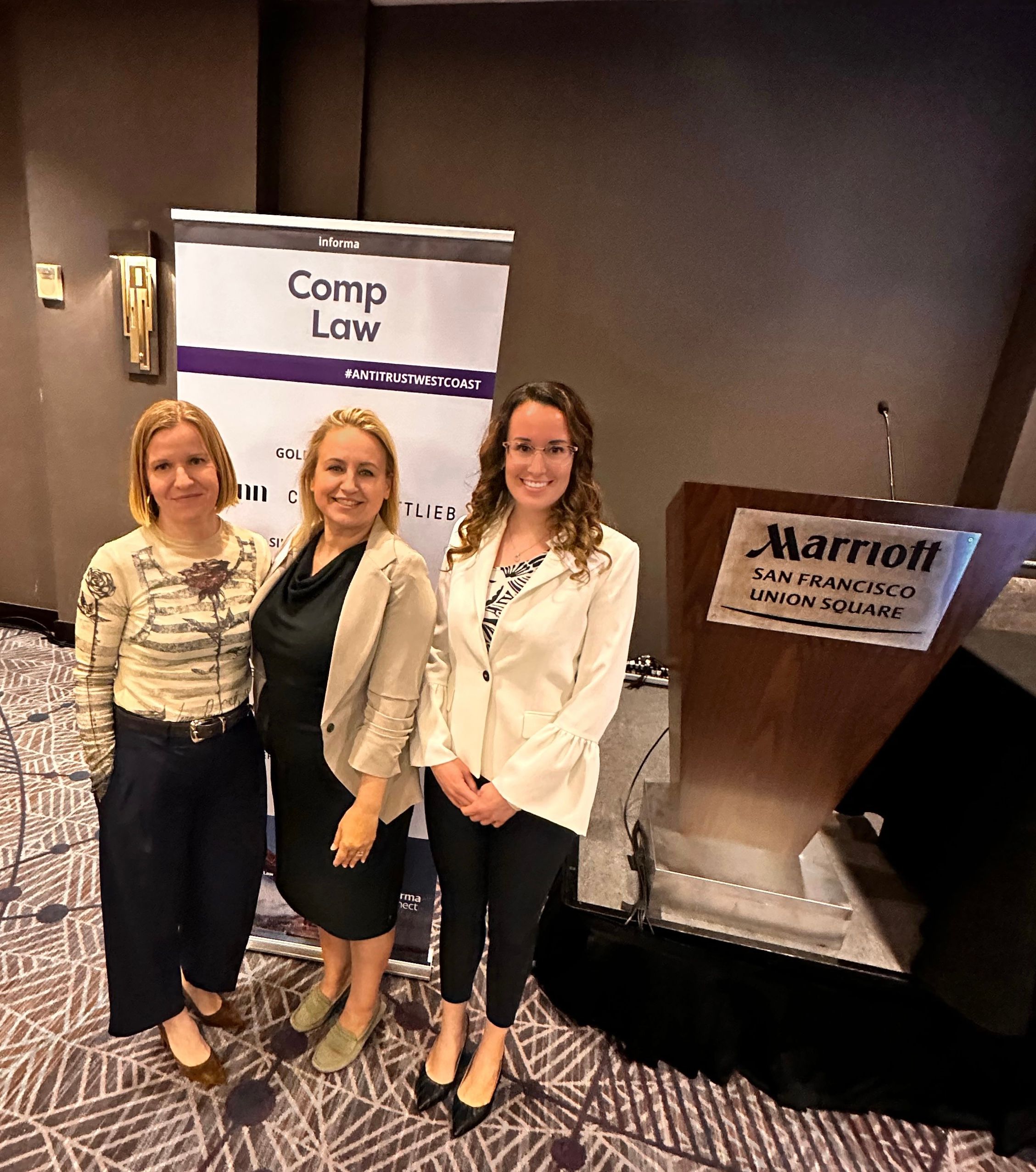Antitrust Around the World

At the Antitrust West Coast 2025 conference, the panel “Antitrust Around the World” brought together global experts to examine how evolving regulatory tools—most notably the EU’s Digital Markets Act (DMA)—are reshaping competition policy, digital market governance, and merger enforcement.
Lilla Nóra Kiss, Senior Policy Analyst at the Information Technology and Innovation Foundation (ITIF), delivered a critical evaluation of the DMA’s first year in practice, noting that while the law has triggered operational shifts among major platforms, it has not yet delivered the competitive or consumer benefits its architects envisioned and in fact may be making things worse.
What Has Changed Under the DMA?
Dr. Kiss highlighted that while the DMA was intended to promote fairness and contestability, it is not delivering tangible benefits to users or smaller competitors, and in many cases, is making things worse.
The regulation has triggered substantial operational changes across major tech platforms, but those changes often come with disrupted services, degraded user experience, and growing compliance burdens. She discussed the following examples:
- Concerning user experience, Apple, Meta, and Google have unbundled key services—such as alternative app stores, reduced cross-service data integration, and mandatory interoperability—resulting in degraded user experience and product fragmentation. Not to mention that Apple is withholding new AI features from EU users, citing legal uncertainty under the DMA.
- On the compliance side, Meta alone has reported over 590,000 hours dedicated to DMA compliance efforts. These hours demonstrate resources that could have been allocated to innovate and provide better services to users.
- From an enforcement perspective, the first DMA fines were recently decided. Apple was fined €500 million for violating anti-steering provisions and Meta was fined €200 million for its “consent or pay” model.
Dr. Kiss noted that despite these costly changes, there is no clear evidence that smaller European firms are benefiting or that the market has become more contestable.
Is the DMA a Global Blueprint?
The panel addressed whether the DMA is influencing regulation elsewhere, a notion often referred to as the “Brussels Effect.” Dr. Kiss clarified that Brussels Effect 1.0 is about market access, which is largely inapplicable in digital markets, since platforms can operate different versions across jurisdictions. While Brussels Effect 2.0 is about norm-setting, which leads to the question of whether other jurisdictions are replicating the DMA or not.
Dr. Kiss explained that what we’re seeing on the global scale is divergence and not convergence. Even jurisdictions adopting ex ante models, such as the UK and Japan, are taking distinct paths with different scopes, legal standards, and degrees of flexibility. Others, like Canada, decided not to adopt a DMA but instead adjusted their existing ex post regimes or are addressing potential anticompetitive issues using existing enforcement tools, as in the United States and Taiwan. Dr. Kiss emphasized that this presents an obvious conclusion: The DMA may be pioneering, but it is not prevailing.
How Is the DMA Shaping Merger Policy?
Although the DMA does not directly regulate mergers, Dr. Kiss and fellow panelists discussed its spillover effects. The DMA acts as a constraint on post-merger behavior—for example, gatekeepers cannot self-preference or combine data without consent. It shifts focus to ecosystem consolidation, vertical leverage, and strategic partnerships (e.g., Microsoft–OpenAI).
The “Antitrust Around the World” panel brought together leading voices in antitrust and tech policy, including:
- Anna Lyle-Smythe, Partner, Slaughter and May
- Sarretta McDonough, Global Antitrust Counsel, Intel
- Tina Wang, Senior Counsel, Competition, OpenAI
- Lilla Nóra Kiss, Senior Policy Analyst, ITIF

Related
April 18, 2024
The DMA in Action: Early Effects and Global Reach
October 10, 2024

